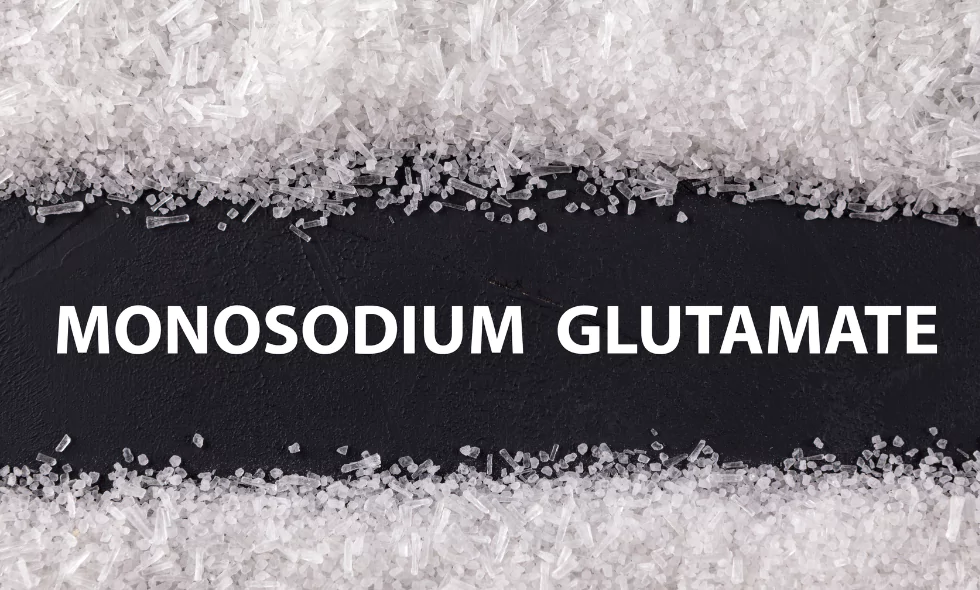Look for "plant-based" MSG or skip it altogether.
Have you ever come across those weird codes on food labels, like "E621", and had no idea what they were? You're not alone!
They are indeed complicated, but don't worry, we'll explain it further. Today, the talk is on E621 (MSG), and here I have prepared answers to many of your concerns as vegans.
Do you know your favourite savoury vegan dishes containing MSG also get their deliciousness from the umami plant-based ingredient? The more widely-known foods among them include certain stir-fries, tofu scrambles and some vegan cheeses. These ingredients are commonly utilized for their umami or savoury depth of flavour.
Before we acknowledge the vegan status of E621, let's discuss the definition of veganism. Veganism is a movement that understands animals to be living beings and should not be used in any matter such as food, clothing or others.
Vegans are the people who choose not to eat animals or products from animals; they also avoid industries which exploit animals and position themselves as avid promoters of veganism and its implications. The main principles of veganism are based on compassion, sustainability, and the idea that animals have the right to be free of harm.

The E number system is used in the European Union (EU) and the European Free Trade Association (EFTA) for the purpose of categorizing such safe food additives. These additives serve a variety of purposes in processed foods, such as:
There are hundreds of E numbers which may not provide you with information about the exact ingredient or where it comes from.
To illustrate, the E100 colour is extracted from turmeric, which contributes to the yellow colour of food. E300 stands for vitamin C produced by nature and, in some cases, found in fruits and vegetables. To figure out what an E number is, you will have to refer to a different list that indicates the E number, the ingredient and the function.
E621 stands for MSG, an acronym derived from monosodium glutamate. It (monosodium glutamate) is a sodium salt of glutamic acid (the amino acid) naturally present in protein sources and some vegetables like tomatoes, cheese and mushrooms.
This naturally occurring glutamic acid is specifically responsible for the umami flavour of these foods. MSG not only has the ability to stimulate the taste buds that perceive umami. These taste buds recognize umami, but it also brings out the overall flavour of the dish being tasted.

Good news for vegans! MSG (E621) usually is considered vegan. These are two primary methods used to make MSG:
Plant Power! In this technique, the source of vegetable starch is fermented with tiny living things such as yeasts or bacteria. This process produces glutamic acid using a portion of starch. After the glutamic acid is collected, cleaned, and combined with sodium dissolution, the result is Monosodium Glutamate. Since there is no involvement of animal products in this way, therefore, this MSG is vegan-friendly
Made in a Lab: MSG can be made through specific scientific processes which do not necessarily use any ingredients drawn from animals. However, some vegans may hesitate this MSG because they may not understand what else is used in the process. For example, some filters in the production of monosodium glutamate found in this way are animal by-products. If you adopt being super-careful in your veganism, you will go for the MSG produced through the fermentation of plants or just no MSG at all.
It is not so easy to recognize E621 or MSG as an ingredient in food labels since the provider might list it as some other name. Some of the more commonly known names for MSG are monosodium glutamate, hydrolyzed vegetable protein, autolyzed yeast extract, and glutamate.
Therefore, you should give particular attention to the labels to check for these names. If the MSG content of a product is not mentioned to be vegan-friendly through clear labelling, it is safer to avoid it for a vegan diet.
Here are some strategies for staying away from MSG:
MSG or monosodium glutamate is easily available and can be found in supermarkets or online if you are craving that particular enhanced taste in your home cooking. Many people buy it as a seasoning and can add it to stir-fries, tofu scrambles, and for that extra hit of flavour to popcorn. In this case, you might also come across MSG being already used in certain vegan products like vegan meats or broths that are sold commercially.
In addition to the vegan debate, there is also a health concern about the consumption of E621. Some people might be sensitive to the MSG supplements and in this case, they might have side effects like headaches, flushing and sweating. On the other hand, the Food and Drug Administration (FDA) deems MSG safe within the amounts consumed in moderation. It is important also to acknowledge that the health effects of E621 might be different from person to person, hence, it is always wise to listen to your body and make choices that reflect your health objectives.
Knowing about E numbers and MSG is one of many tools that can be useful for any vegan. When you break up these codes and ingredients, you will be capable of reading food labels with confidence and making correct decisions which are based on your diet tastes and ideals.
Keep in mind there is power in little research. Hence, the next time the same E number is on the label, do not hesitate to look it up and learn more about it. And this is where the real fun begins! You can now keep on discovering the yummy vegan food and making the healthier choices that are your own.